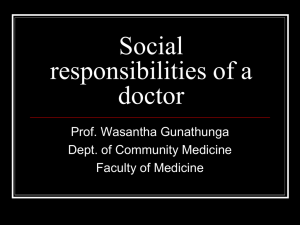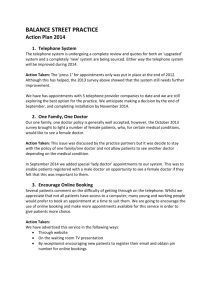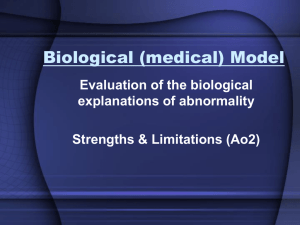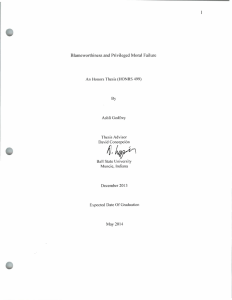Handout - The Aristotelian Society
advertisement
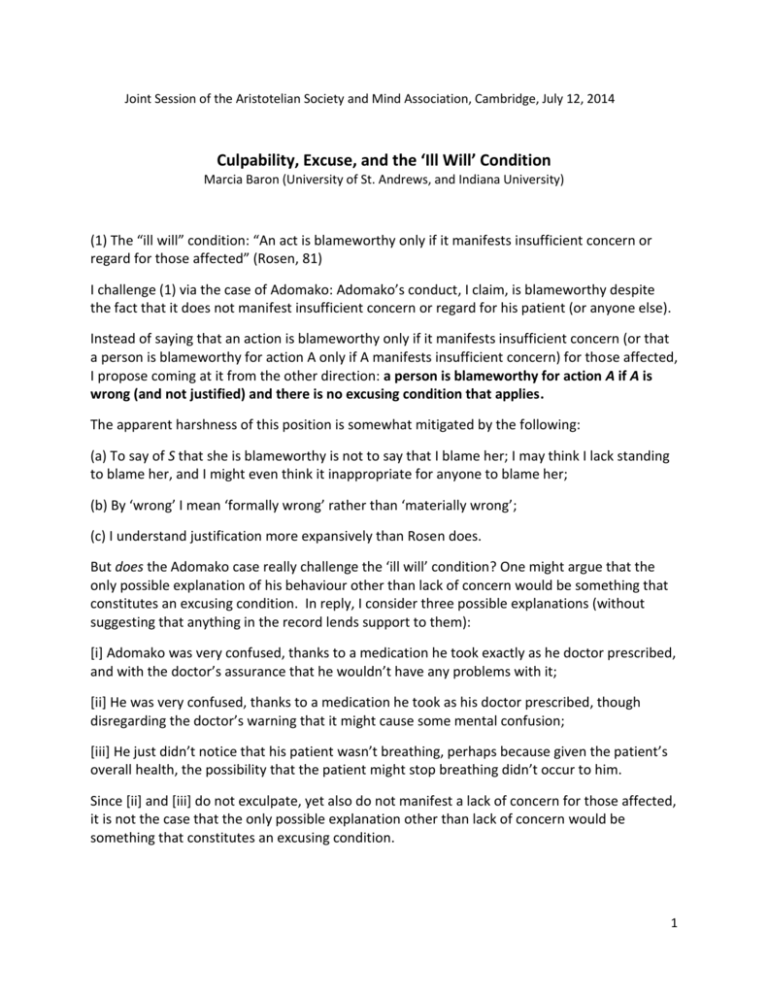
Joint Session of the Aristotelian Society and Mind Association, Cambridge, July 12, 2014 Culpability, Excuse, and the ‘Ill Will’ Condition Marcia Baron (University of St. Andrews, and Indiana University) (1) The “ill will” condition: “An act is blameworthy only if it manifests insufficient concern or regard for those affected” (Rosen, 81) I challenge (1) via the case of Adomako: Adomako’s conduct, I claim, is blameworthy despite the fact that it does not manifest insufficient concern or regard for his patient (or anyone else). Instead of saying that an action is blameworthy only if it manifests insufficient concern (or that a person is blameworthy for action A only if A manifests insufficient concern) for those affected, I propose coming at it from the other direction: a person is blameworthy for action A if A is wrong (and not justified) and there is no excusing condition that applies. The apparent harshness of this position is somewhat mitigated by the following: (a) To say of S that she is blameworthy is not to say that I blame her; I may think I lack standing to blame her, and I might even think it inappropriate for anyone to blame her; (b) By ‘wrong’ I mean ‘formally wrong’ rather than ‘materially wrong’; (c) I understand justification more expansively than Rosen does. But does the Adomako case really challenge the ‘ill will’ condition? One might argue that the only possible explanation of his behaviour other than lack of concern would be something that constitutes an excusing condition. In reply, I consider three possible explanations (without suggesting that anything in the record lends support to them): [i] Adomako was very confused, thanks to a medication he took exactly as he doctor prescribed, and with the doctor’s assurance that he wouldn’t have any problems with it; [ii] He was very confused, thanks to a medication he took as his doctor prescribed, though disregarding the doctor’s warning that it might cause some mental confusion; [iii] He just didn’t notice that his patient wasn’t breathing, perhaps because given the patient’s overall health, the possibility that the patient might stop breathing didn’t occur to him. Since [ii] and [iii] do not exculpate, yet also do not manifest a lack of concern for those affected, it is not the case that the only possible explanation other than lack of concern would be something that constitutes an excusing condition. 1 (2) The issue about justifications: Rosen holds, but I do not, that killing in mistaken self-defence is at best excused. I hold that it can be justified if the belief that it was necessary to act in selfdefence was reasonable. More generally, I understand justification to hinge on reasonable belief rather than on truth. 2




